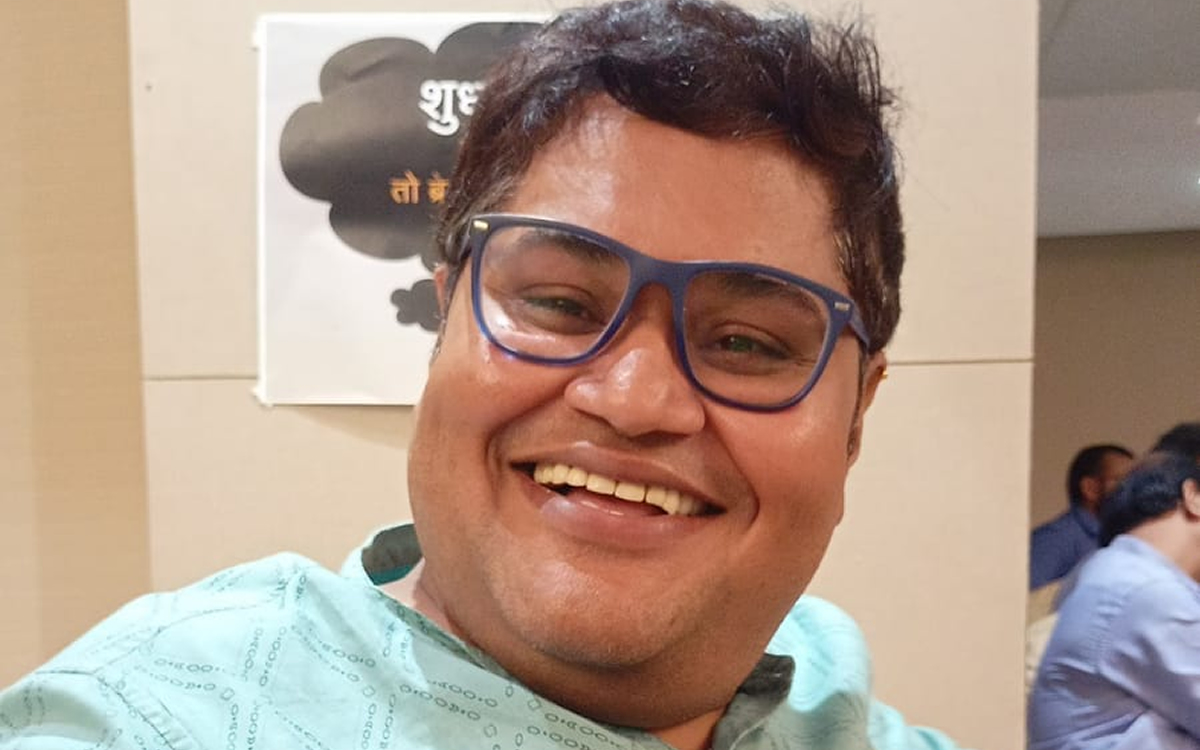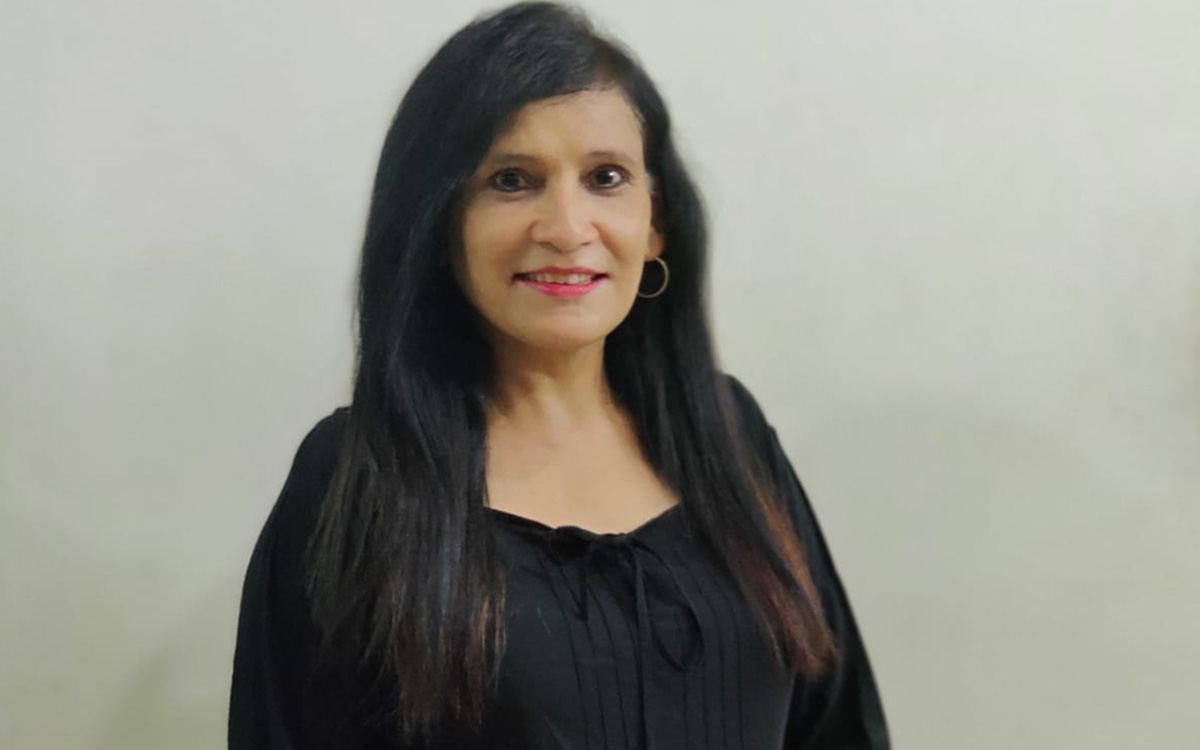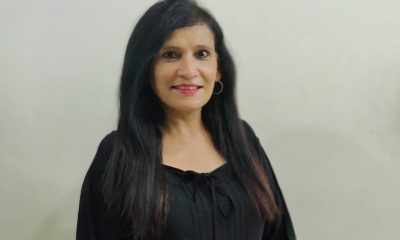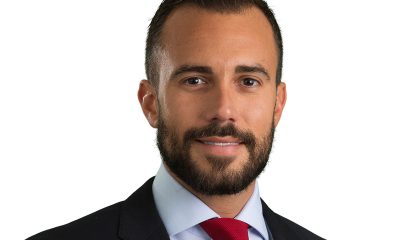India
LGBTQ, intersex Indians hope marriage equality will spur family acceptance
Familial rejection has spurred same-sex couples to die by suicide

As LGBTQ and intersex Indians continue to eagerly await a ruling from the country’s Supreme Court on whether same-sex couples can legally marry; they must still confront a lack of acceptance from their families and from society-at-large.
A lesbian couple in Gujarat state in January 2018 died by suicide when they jumped into a river. They left a chilling suicide note behind.
“We have left this world to live with each other,” the note left by Asha and Bhavna Thakor read. “The world did not allow us to stay together. We did not have any men with us. This world did not allow us to stay together. When will we meet again? When will we meet … perhaps in the next birth we will meet again.”
Another chilling incident took place in West Bengal state in 2011.
A lesbian couple, Swapna Mondol and Sujata Mondol was found dead in a rice paddy near a village. After two years together, villagers found out about their love for each other and ordered the girls to stay away from each other. Their families also tried to separate them.
Sujata Mondol’s parents married her off to an engineer, but she stayed in contact with Swapna Mondol. A local police report notes the couple took poison when they met again after Sujata Mondol’s husband left.
Souvik Saha, an LGBTQ activist and founder of People for Change, told the Washington Blade that marriage equality can influence families to be more accepting, but some of them may still struggle.
“Support networks and resources for families to understand and embrace their LGBTQ+ members will continue to be essential,” said Saha “Extend outreach efforts to regions where acceptance might be slower to come. Collaborate with local organizations, community leaders and activists to foster understanding and acceptance.”
Saha talked about the pending Supreme Court’s marriage equality ruling and said a decision in favor of marriage rights for same-sex couples would mark a significant milestone in the fight for LGBTQ and intersex rights in the country. Saha added there are several important next steps to consider.
“Even after a positive verdict, there might still be misconceptions and lack of awareness about LGBTQ rights. Continue to conduct awareness campaigns, workshops and seminars to educate the public about the implications of the verdict and the broader LGBTQ rights movement,” said Saha. “Strengthen support systems for LGBTQ individuals, especially those who might face backlash or discrimination from their families or communities. Offer counseling, mental health services and safe spaces to help individuals navigate challenges that might arise post-verdict.”
Saha told the Blade that cultural sensitivity in the country needs to be taken into account if the Supreme Court rules in favor of marriage equality. He said monitoring the verdict’s implementation and its impact on the ground is essential.
“Holding institutions accountable for any failures in upholding the rights granted by the verdict,” said Saha. “Provide legal assistance to LGBTQ couples who may face challenges related to documentation, inheritance rights and other legal aspects that might arise due to the new legal status of their marriages.”
Shyam Konnur, managing director of Pune-based Mist LGBTQ Foundation, agreed the marriage equality ruling will have a big impact in India.
Konnur said the decision would open more doors, build hope within the community and encourage more queer people to be free, which in turn, would help in creating more awareness and allow NGOs to do more in terms of creating a safer environment for LGBTQ and intersex Indians. Konnur, however, said it is not enough.
“I believe that marriage equality is just the start,” said Konnur. “The LGBTQ community in India doesn’t have any rights that other citizens enjoy. Whether or not the marriage equality case is in our favor, I believe we need to fight for non-discriminatory laws for the LGBTQ community. Every day we hear about a case where an LGBTQ person is denied of something just because they belong to the community.”
Konnur noted India’s LGBTQ and intersex community fights discrimination based on their gender expression every day in terms of how they dress, and pointed out legal assistance remains out of reach for most of them. The lack of mental health support tailored to queer people, along with navigating the country’s health care system and finding a gender-neutral restroom they can use without harassment are additional hurdles.
Ankush Kumar is a freelance reporter who has covered many stories for Washington and Los Angeles Blades from Iran, India and Singapore. He recently reported for the Daily Beast. He can be reached at [email protected]. He is on Twitter at @mohitkopinion.

Amid heatwaves in the Indian capital of New Delhi, the world’s biggest election is raising the temperature even higher.
The temperature in the Indian capital on the morning of April 18 reached 107 degrees, and the sun blazed like a furnace. In the political corridors, however, the sweat wasn’t just from the heat, but from the fervent preparation for and in anticipation of the election results.
The Bharatiya Janata Party, the current ruling party, aggressively prepared for the 2024 general election months ago but the other regional and national parties still seem to be preparing while the election has started in the country.
The Washington Blade traveled to New Delhi and witnessed the political party’s campaign and preparations.
Home Minister Amit Shah, representing the BJP, was aggressively campaigning in Ahmedabad and Gandhinagar in Gujarat state. BJP National President Jagat Prakash Nadda was campaigning in Assam state.
The Blade interviewed Barkha Trehan, a political activist in New Delhi. She said that while various political parties in India address transgender and women’s issues in their campaign rhetoric, the Indian National Congress fails to translate its promises into action at the grassroots level.
“Political parties, especially the Congress party in the country, have talked and written enough in their election manifesto, but in last many years they have done nothing,” Barkha told the Blade. “In the last 10 years, we have seen that whatever Bharatiya Janata Party (BJP) says or has written in their election manifesto, we have seen that work done on the ground level. Let’s say it is a women’s issue or transgender community issue, or any other issues like infrastructure issues, everything is visible.”
Barkha said that discussing an issue and taking tangible action on it are distinct endeavors.
She emphasized the BJP’s efforts at the grassroots level, whether concerning trans issues or other matters, deserve recognition. The BJP, according to her, has undertaken numerous initiatives for the trans community that skill development programs and providing loans for startups.
“BJP wants to work for all without any discrimination,” Barkha told the Blade. “They want to create a good image of our country in the world, but the Congress party always pulls down the fame. They always go abroad and discredit the country by talking negative all the time. They think this is the only way to win election in India, but this won’t work out for them.”
Talking about trans issues, Barkha said Prime Minister Narendra Modi has met people from the trans community. She told the Blade that he is trying to motivate the trans community to take advantage of employment opportunities.
“Before Modi, nobody used to look at the transgender community,” said Barkha. “No one used to talk about them. When the prime minister’s video went viral on the internet and television while he had a conversation with the transgender community, other people started and felt inspired to work for the transgender community and talk to them.”
Barkha told the Blade these things send a message to the trans community that there are people who are listening and who will always stand by it.
She noted the trans community has always faced discrimination, neglect, and abuse in India. This political outreach, according to Barkha, sends a strong message that the trans community is as important as anyone else, they have the same value as any other citizens in the country, and they deserve a better life. She told the Blade trans people can make money when they can learn new skills, and they will have self-confidence and self-respect when they can earn a living.
Discrimination based on gender identity remains commonplace in India
India’s trans community has suffered discrimination for many years.
An openDemocracy report notes 80 percent of trans Indians are either engaged in sex work or begging. India in 2019 passed a law, Transgender Persons (Protection of Rights) Act, with aims to protect the rights of trans people, their welfare, and matters connected therewith and incidental thereto.
The Indian government and BJP in 2022 came up with a socialist scheme for trans people. Support for Marginalized Individuals for Livelihood and Enterprise is a program to support trans people who are engaged in begging. It provides them access to medical facilities, counseling, education, skill development, and economic linkages with the support of state governments and local urban bodies along with volunteer and community-based organizations.
The Congress in Telangana state was recently accused of disrespecting the trans community when Revanth Reddy, the Congress party’s sitting chief minister, sent anti-trans slurs that targeted the state’s opposition party.
The Blade reached out to the Congress party’s office in New Delhi, but it denied the interview request.
BJP’s position on LGBTQ issues questioned
The Blade while in New Delhi also visited the Aam Aadmi Party’s headquarters.
Despite the scorching sun overhead, Delhi residents sought refuge from the sweltering temperatures. The Blade, amid the election fervor and campaign hustle, interviewed Aam Aadmi Party spokesperson Preeti Sharma Menon. She said the BJP is regressive and seeks to intrude into a person’s bedroom, dietary choices, and other aspects of their personal lives.
“If BJP comes back to power, the party will keep doing what it is doing now, not supporting LGBTQ rights,” said Menon. “I think, there is no doubt in the LGBTQ community that one cannot have BJP in power and live safely. If we want to give equal rights to every citizen of this country, then only the Indian National Developmental Inclusive Alliance is the only chance.”
She said the Aam Aadmi Party always tries to give LGBTQ people a chance, but the party in this general election has few seats (in parliament) for which to fight because it is part of the opposition alliance.
“We always think if you want the change, the LGBTQ community must have a representation in the parliament,” said Menon. “So, we always try to make LGBTQ community in the country politically active.”
Ankush Kumar is a reporter who has covered many stories for Washington and Los Angeles Blades from Iran, India and Singapore. He recently reported for the Daily Beast. He can be reached at [email protected]. He is on Twitter at @mohitkopinion.
India
Indian political parties for the first time include LGBTQ rights in election platforms
Voters will begin to cast ballots on April 19

The world’s largest democratic exercise will begin in India on April 19 as citizens begin to cast their votes in the country’s election.
This year’s election is different because national level political parties for the first time are promising to extend marriage rights to same-sex couples as part of their election platforms.
The Indian National Congress, one of India’s oldest political parties, promised after wide consultation that it would introduce a bill that would recognize civil unions between couples who are part of the LGBTQ community. The party, which has governed India for the majority of the period since independence from the U.K. in 1947, has refrained from taking a stance on laws that include Section 377, which criminalized consensual same-sex sexual relations.
Then-Health Minister Gulam Nabi Azad in 2011 when the INC was in power said homosexuality is a disease. He made the controversial comment while speaking at an HIV/AIDS conference in New Delhi, the Indian capital.
“Unfortunately, this disease has come to our country too,” said Azad. “Where a man has sex with another man, which is completely unnatural and should not happen but does.”
When the Delhi High Court was hearing the Naz Foundation case, the Home Affairs Ministry opposed the striking down of Section 377 based on its belief that homosexuality cannot be morally condoned. The INC never struck down Section 377, which criminalized homosexuality, in parliament.
A 5-judge panel on the Supreme Court on Sept. 6, 2018, decriminalized consensual same-sex sexual relations.
The Communist Party of India (Marxist) on April 4 unveiled its platform with a range of socialist commitments, including support for LGBTQ rights. Among these pledges is to amend the Transgender Persons (Protection of Rights) Act 2019 to address community concerns and ensure legal recognition and protection for same-sex couples akin to marriage.
The platform also outlined plans to introduce a bill similar to the Special Marriage Act of 1954, which allows partners to be listed as dependents and facilitating like inheritance, alimony in the event of divorce and other issues. The party further pledged to enact a comprehensive anti-discriminatory bill that would include LGBTQ people, ensure quotas in educational institutions and implement horizontal reservations in employment.
Addressing the issue of crimes against LGBTQ people, the platform promised to treat such offenses on par with crimes against heterosexuals. The platform also calls for tackling bullying, violence and harassment of gender non-conforming and LGBTQ people in educational settings, enforcing anti-hazing policies and combating hazing based on sexual orientation and gender identity.
The platform further touched issues related to transition and informed consent.
The Special Marriage Act of 1954 is a law that provides for civil unions among Indians and Indian nationals who live abroad, regardless of the religion or faith followed by either party. This law enables people from two different religious backgrounds to enter into marriage. Parliament in 2019 passed the Transgender Persons (Protection of Rights) Act that extended rights to trans people.
Brinda Karat, a former member of the Rajya Sabha, the upper house of the Indian Parliament, and leader of the Communist Party of India (Marxist), spoke with the Washington Blade and said the current government has homophobic ideas that are not acceptable to the party.
The ruling government under Prime Minister Narendra Modi is striving to secure more than 400 parliament seats in the upcoming election, aiming for a substantial majority.
Various polls conducted by Indian news organizations indicate a probable victory for the ruling Bharatiya Janata Party. In response to the BJP’s dominance, Congress and several national and regional parties have joined forces as the Indian National Developmental Inclusive Alliance.
This alliance comprises 26 opposition political parties. Despite its formation, however, there is no clear coalition strategy in place and only two parties have included LGBTQ-specific policies in their election platforms.
The Blade reached out to Congress’ spokesperson for comment, but has not received a response. The BJP also did not respond to a request for comment.
The party has yet to release its election platform.
Ankush Kumar is a reporter who has covered many stories for Washington and Los Angeles Blades from Iran, India and Singapore. He recently reported for the Daily Beast. He can be reached at [email protected]. He is on Twitter at @mohitkopinion.
India
New Indian immigration law excludes LGBTQ people
Government to offer fast-track citizenship to nationals from neighboring countries

The Indian government on March 11 implemented a law that allows undocumented people who entered the country from Pakistan, Bangladesh, Afghanistan and other neighboring countries before Dec. 31, 2014, to receive fast-track citizenship.
Parliament in 2019 passed the Citizenship Amendment Act, which provides citizenship to undocumented people who are minorities — mainly because they are Hindu, Jain, Sikhs, Buddhist, Parsi and Christian — who face persecution in their countries of origin. The rule that took effect this month does not include LGBTQ people.
LGBTQ Pakistanis face discrimination based on gender identity, violence, homicide, threats and hate speech, discrimination in accessing employment and access to housing. Lesbians, in particular, face challenges that include sexual harassment, violence and a greater chance of losing housing and jobs if sexual orientation is revealed.
According to the Human Rights Watch report in 2022, Afghanistan’s gender minorities have faced grave threats to their safety and lives under the Taliban regime. Even before the Taliban took over the country, former President Ashraf Ghani passed a law that criminalized consensual same-sex sexual relationships.
According to the Taliban’s statement given to the Built, a German tabloid, before the fall of Kabul, the country’s capital, in 2021, gay people would be punished in two ways, either by stoning or by standing behind a wall that will fall on them.
A 2016 Human Rights Watch from 2016 notes the killings of several LGBTQ activists and illegal arrests by police in Bangladesh.
Bangladesh’s National Human Rights Commission in 2013 asked the government to protect the LGBTQ community from discrimination. The commission acknowledged police physically and sexually assault LGBTQ people, and make arbitrary arrests based on an individual’s appearance.
Although India’s CAA does not fast-track citizenship for new arrivals but sticks to the cut-off date of December 2014; there are no records of any LGBTQ Muslims coming from Pakistan, Afghanistan or Bangladesh to India.
The Indian Home Affairs Ministry says the applicant must provide six types of documents and specify the “date of entry” in India.
“These rules will now enable minorities persecuted on religious grounds in Pakistan, Bangladesh and Afghanistan to acquire citizenship in our nation,” Union Home Minister Amit Shah said in an X post on March 11. “With this notification PM (Prime Minister) Shri Narendra Modi has delivered on another commitment and realized the promise of the makers of our constitution to the Hindus, Sikhs, Buddhists, Jains, Parsis and Christians living in those countries.”
More than 1,000 members of the LGBTQ community protested against the law in New Delhi, India’s capital, after Parliament passed it in 2019. Tejasvi Surya, an MP from Bengaluru and a member of the ruling party, said those who are protesting against the CAA, especially LGBTQ members want Pakistani Muslims to come into India.
“Let me assure all of you, you’re seriously misplaced. There is no iota of idea or freedom or recognition of LGBTQ rights in Pakistan,” said Surya. “You are proudly going about your LGBTQ rights and living a dignified existence here and fighting for a more dignified life in India because we are not Pakistan. So, if you let all the Muslims of Pakistan to come into India, then there will be no questions of LGBTQ rights in India.”
The applicant can apply for citizenship in India through an online portal with listed documents that include birth certificates, tenancy records, identity papers and any license, school, or educational certificate issued by a government authority in Afghanistan, Pakistan and Bangladesh. The applicant needs to produce an eligibility certificate issued by a reputable community institution that confirms they belong to the Hindu, Sikh, Buddhist, Jain, Parsi, or Christian community and remains a member of it.
Rani Patel, an activist, and founder of Aarohan, a nonprofit organization that works with transgender Indians, said the LGBTQ community is always neglected.
“Every country has a set of rules and regulations,” said Patel. “We cannot encroach on other’s area. We can take care of our LGBTQ community. We cannot say that we can take your LGBTQ people. We have a huge population, and this is the government’s call.”
Guru Prasad Mohanty, an LGBTQ rights activist in Uttarakhand, told the Washington Blade that the Indian government has always excluded the LGBTQ community.
“The LGBTQ community in India has been left out in every sector and in every form, so I am not surprised that they left the community,” said Mohanty. “I would have been happy, not only me but all the members of the community, if LGBTQ community has been included in this.”
Ankush Kumar is a reporter who has covered many stories for Washington and Los Angeles Blades from Iran, India and Singapore. He recently reported for the Daily Beast. He can be reached at [email protected]. He is on Twitter at @mohitkopinion.




















